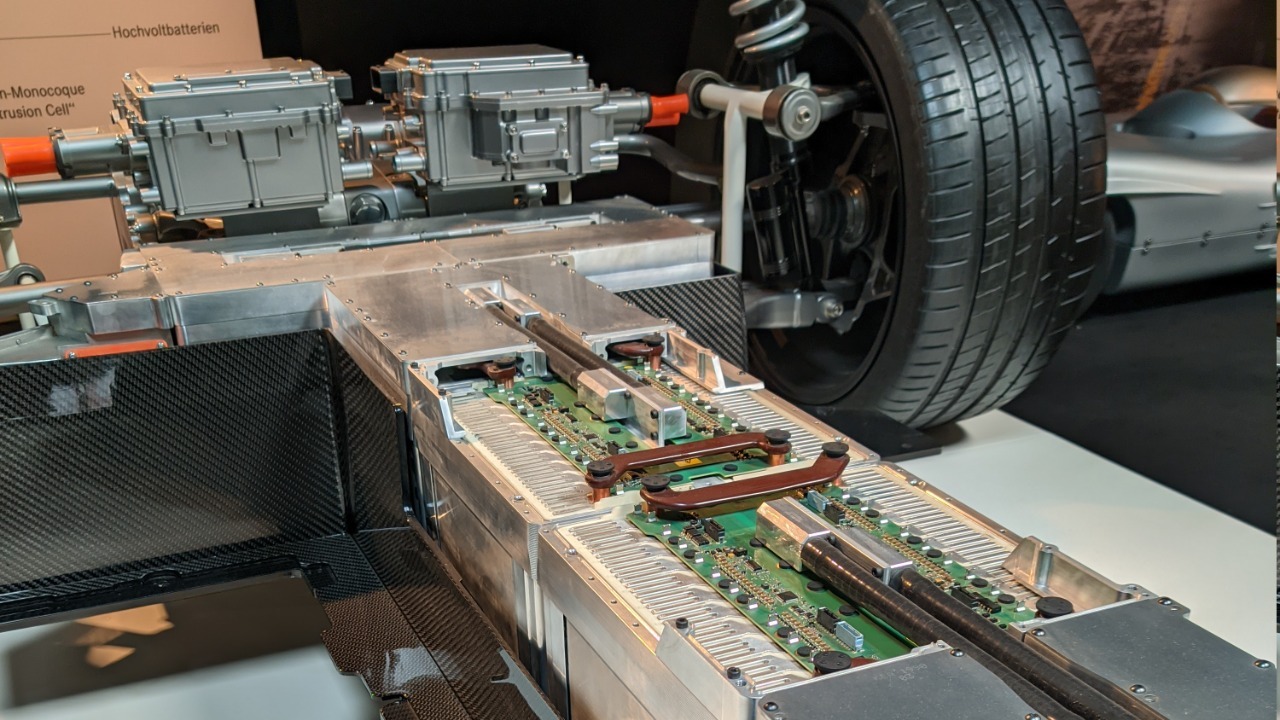
Recent breakthroughs in solid-state battery technology are poised to revolutionize the electric vehicle (EV) industry. Sunwoda recently unveiled a next-generation model with an impressive 400 Wh/kg energy density, potentially enabling longer ranges and faster charging. Meanwhile, Toyota has developed a solid-state battery with a 40-year lifespan, a development that could redefine EV durability. However, the recent halt in Toyota’s factory construction raises questions about the commercialization timeline of these promising technologies.
The Fundamentals of Solid-State Batteries
Solid-state batteries represent a significant shift in energy storage technology. At their core, they replace the liquid electrolytes found in traditional batteries with solid materials, resulting in safer and more efficient energy storage. This fundamental change in design is based on established scientific principles and has implications for applications beyond EVs, including consumer electronics.
The basic components of a solid-state battery include solid electrolytes, such as ceramics or polymers. These materials facilitate the movement of ions between the anode and cathode without the need for flammable liquids, a key feature that distinguishes solid-state batteries from their liquid-based counterparts. This design promises to offer safer and more efficient energy storage solutions for a range of applications, from EVs to portable devices.
How Solid-State Batteries Differ from Lithium-Ion
Compared to traditional lithium-ion batteries, solid-state batteries offer several advantages due to their unique electrolyte structure. They use non-liquid conductors, which reduce the risks of leakage and fire associated with liquid electrolytes. This structural difference also allows for higher ion conductivity and stability under extreme temperatures, making solid-state batteries a promising next step in battery evolution.
The transition from lithium-ion to solid-state batteries represents an evolutionary path towards improved overall performance. With their enhanced safety features and potential for greater energy storage, solid-state batteries are poised to deliver significant improvements in next-generation EVs and other high-demand applications.
Advantages of Solid-State Technology
One of the key advantages of solid-state batteries is their enhanced safety features. The absence of liquid electrolytes minimizes the risk of thermal runaway, a common issue in traditional batteries that can lead to fires. This makes solid-state batteries ideal for high-demand uses like electric vehicles.
Another significant benefit is the potential for a longer lifespan. Toyota’s solid-state battery, for example, is reported to have a 40-year lifespan, a development that could change everything we know about EVs. Furthermore, solid-state batteries offer benefits in charging speed and energy efficiency, positioning them to deliver improved performance in next-gen EVs.
Breakthroughs in Energy Density
Solid-state batteries achieve higher energy densities compared to conventional batteries, enabling compact yet powerful solutions for EVs. Sunwoda’s recent unveiling of a next-gen solid-state battery with 400 Wh/kg energy density marks a significant leap in capacity metrics. Such densities could support vehicles traveling farther on a single charge without increasing battery size, extending the range of EVs and making them more practical for everyday use.
Toyota’s Role in Solid-State Development
Toyota has been a major player in the development of solid-state battery technology. The company’s long-term investments in solid-state research have resulted in innovations that promise transformative EV capabilities through extended durability. Toyota’s 40-year solid-state battery, in particular, could redefine EV longevity and reduce the need for frequent battery replacements.
Despite the recent halt in factory construction, Toyota’s progress towards practical applications of solid-state batteries remains significant. These batteries could be integrated into future Toyota models, enhancing performance and potentially setting a new standard in the EV industry.
Challenges and Setbacks in Production
Despite the promising potential of solid-state batteries, there are significant manufacturing hurdles to overcome. Scaling solid electrolytes while maintaining cost-effectiveness and consistency for mass production presents a major challenge. Toyota’s recent halt of factory construction raises questions about the commercial viability of solid-state batteries and their path to widespread adoption.
There are also broader industry obstacles to consider, including material sourcing and integration issues that delay the transition from lab prototypes to real-world EVs. Overcoming these challenges will be crucial for the successful commercialization of solid-state batteries.
The Future Outlook for Solid-State Batteries
The future of solid-state batteries in EVs looks promising, with advancements from companies like Sunwoda and Toyota potentially bringing these batteries to roads in the coming years. Improved performance, longer lifespan, and enhanced safety could make the next EV more likely to feature solid-state technology.
However, ongoing research is needed to overcome current limitations and ensure that solid-state batteries fulfill their promise as a game-changer in energy storage. As the technology continues to evolve, it will be interesting to see how it shapes the future of the EV industry and beyond.
More from MorningOverview